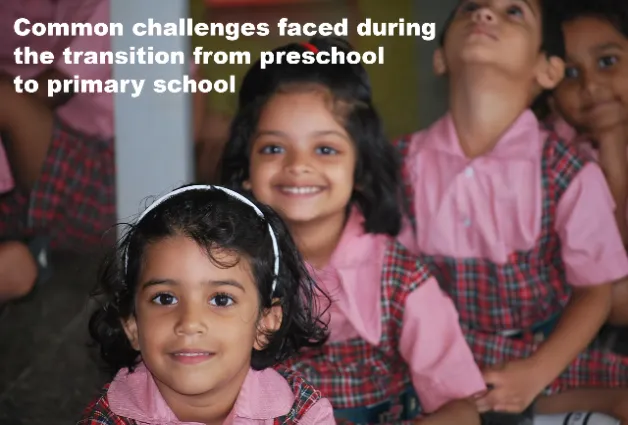Transitioning from preschool to primary school is an important milestone for young kids, accustomed to familiar settings and faces. It marks the beginning of their formal academic journey and a new stage in their social development. This transition can often be challenging for both children and their parents. We will explore six common challenges that children and families may face during such a time.
1. Adjusting to a new environment –
Adjusting to a new school environment is one of the most challenging parts of this new phase. Typically, preschools and primary schools are likely to have different rules, routines, and expectations unless you’re continuing in a school that offers both. These changes can be overwhelming for young children. They may struggle to adapt to the new classroom setting, teacher, and classmates. This can lead to feelings of anxiety, stress, and confusion. Kids might become cranky and irritable during such a time.
2. Dealing with separation anxiety –
Experiencing separation anxiety is the second common challenge to watch out for parents. Preschools typically have a more relaxed and nurturing environment, where children feel safe and secure. primary schools have a more formal and structured atmosphere, which can be disconcerting for children. They might find it hard to sit still and concentrate. Kids are also accustomed to being free to move about in preschool whereas primary school classes require kids to be seated and pay attention to the classroom. With so many new feelings and experiences, it’s not uncommon for kids to resist attending school altogether.
3. Developing independence –
Primary school by default requires children to be more independent than preschool. They are expected to follow rules and routines, complete tasks, and work independently. This can be challenging for children who are accustomed to being directed and monitored by an adult frequently, and having someone else take care of their needs. Children may struggle to take responsibility for their own learning, behaviour and belongings. It can take them some time to adjust to this new level of independence, and they may require support and guidance from parents and teachers.
4. Coping with an academic curriculum –
Preschools typically focus on play-based learning, where children learn through hands-on activities and exploration. Primary schools focus on formal learning, such as reading, writing, and mathematics. Apart from finding it difficult to understand various subjects, they may find the increased workload challenging and may need some supervision to ensure they are at ease.
5. Building social relationships –
Transitioning from preschool to primary school also involves building new social relationships. Children at this stage learn how to interact with new classmates, teachers, and other adults. They may struggle to make friends, especially if they are shy or have social anxiety, in a new setting. This can lead to feelings of loneliness and isolation. Parents and teachers can support children by helping them to understand the importance of social skills, such as communication and cooperation.
6. Managing expectations –
Preparing your child in advance for this transition is key for parents. Since parents are excited to learn all the details emerging in their child’s life, they also need to calibrate their own expectations. While it’s normal for parents to have certain expectations for their child’s academic and social development, children may feel overwhelmed by the expectations and responsibilities that come with primary school. It is important for parents and teachers to communicate and work together to determine what some of the goals for your child can look like.




